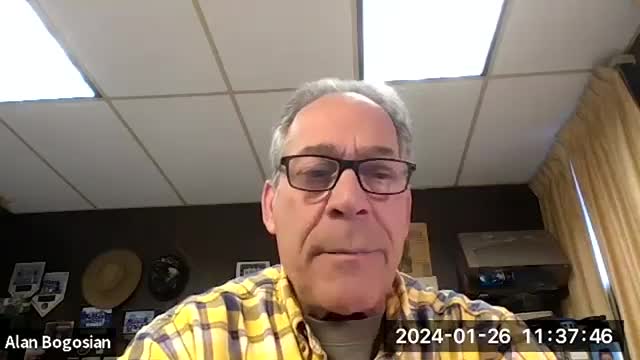Concord's Local Governance More Complex Than Sudbury's, Community Leaders Discuss
January 26, 2024 | Town of Concord, Middlesex County, Massachusetts

This article was created by AI summarizing key points discussed. AI makes mistakes, so for full details and context, please refer to the video of the full meeting. Please report any errors so we can fix them. Report an error »

During the January 26, 2024, meeting of the Town of Concord's Historical Commission, members engaged in a thoughtful discussion comparing Concord to neighboring Sudbury, highlighting the unique challenges and opportunities faced by Concord due to its rich historical context and community involvement.
A key point raised was the complexity of Concord's local government structure, which includes numerous committees, commissions, and boards. This complexity is attributed to Concord's significant historical focus, particularly its role in the American Revolutionary War and its literary heritage, which attracts tourism and necessitates careful management of historical resources. In contrast, Sudbury is characterized as a primarily residential community with limited commercial and industrial presence, leading to a simpler governance structure.
Commission members acknowledged that the intricate nature of Concord's historical significance presents both challenges and opportunities for public engagement. The Massachusetts Historical Commission (MHC) recognizes these complexities, understanding that Concord's historical landscape requires a more nuanced approach to governance and community involvement.
Additionally, the discussion touched on the importance of public outreach ahead of town meetings, emphasizing the need for adequate time to engage the community in discussions about historical preservation and related initiatives. This commitment to transparency and public participation is seen as vital for fostering a collaborative environment in Concord.
As the Historical Commission moves forward, the insights gained from this meeting will guide efforts to navigate the complexities of Concord's historical landscape while ensuring that community voices are heard and valued in the decision-making process.
A key point raised was the complexity of Concord's local government structure, which includes numerous committees, commissions, and boards. This complexity is attributed to Concord's significant historical focus, particularly its role in the American Revolutionary War and its literary heritage, which attracts tourism and necessitates careful management of historical resources. In contrast, Sudbury is characterized as a primarily residential community with limited commercial and industrial presence, leading to a simpler governance structure.
Commission members acknowledged that the intricate nature of Concord's historical significance presents both challenges and opportunities for public engagement. The Massachusetts Historical Commission (MHC) recognizes these complexities, understanding that Concord's historical landscape requires a more nuanced approach to governance and community involvement.
Additionally, the discussion touched on the importance of public outreach ahead of town meetings, emphasizing the need for adequate time to engage the community in discussions about historical preservation and related initiatives. This commitment to transparency and public participation is seen as vital for fostering a collaborative environment in Concord.
As the Historical Commission moves forward, the insights gained from this meeting will guide efforts to navigate the complexities of Concord's historical landscape while ensuring that community voices are heard and valued in the decision-making process.
View full meeting
This article is based on a recent meeting—watch the full video and explore the complete transcript for deeper insights into the discussion.
View full meeting
